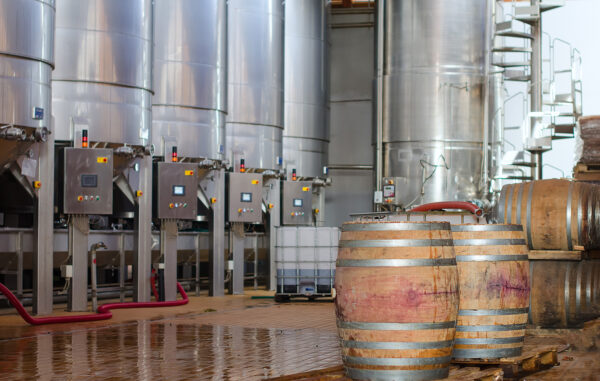Introduction to Custom Crush Agreements
The wine industry is complex, and it takes a significant amount of time, money and skill to produce a high-quality product. One aspect of the industry that has been gaining popularity in recent years is the “Custom Crush” model of business. This structure lets an aspiring wine maker enter the business without a producer’s license and without expending the capital required to develop a stand-alone winery.
Definition of the Custom Crush Relationship
The traditional “Custom Crush” arrangement, based on the historical “Negociant” model from the European wine industry, involves an agreement or formal contract under which a customer pays a wine producer to produce wine to order, after which the customer markets the wine. The “customer”, otherwise known as the “custom crush operator,” does not need to be a bonded winery, nor does it need the state and federal licenses required for fermentation and production of wine. Instead, the custom crush operator participates in the wine industry via a contractual relationship with a bonded “host winery.” This typically results in significantly lower overhead for the custom crush operator, and an additional income stream for the host winery.
In this arrangement, the custom crush operator typically supplies or purchases grapes or bulk wine, and delivers the product to the licensed and bonded host winery with whom it contracts under a written agreement for custom crush processing, storage, bottling and labeling. The host winery controls the winemaking process and bears responsibility for meeting regulatory requirements, while the custom crush operator may provide winemaking instructions to guide the host winery through the winemaking process, before ultimately marketing the wine. The custom crush operator also must rely upon the production permits and bond of the host winery until the point the wine is bottled, labeled and released as tax paid (or transferred in bond to another bonded premises such as a warehouse).
The terms of the relationship between the custom crush operator and host winery are typically set out in a custom crush agreement (“CCA” or “custom crush agreement”). The CCA represents a crucial component of the custom crush relationship, reflecting the regulatory basis and key terms of the relationship.
Legal Considerations for Custom Crush Agreements
A robust CCA should address the many obligations held by each of the custom crush operator and the host winery. The CCA should document the terms and conditions of the wine-making process and the host winery’s regulatory responsibilities. This includes fermenting, processing, storage, bottling and packaging (including labeling) of wine. It should also address winemaking specifications, fees charged by the host winery, and risk allocation. In many custom crush arrangements, the host winery charges the custom crush operator a fee based on production measured by cases or gallons.
Many CCAs also memorialize the obligations of the host winery to store the wine in bond, maintain all required licenses, comply with all reporting requirements under federal law, and comply with Alcohol and Tobacco Tax and Trade Bureau (“TTB”) requirements for varietals content. CCAs might also address grape supply, either from the custom crush operator (if it has a vineyard) or third parties.
Because the host winery must apply for and obtain the appropriate COLA as the bonded winery, custom crush agreements often also cover intellectual property and branding issues as well. In order to label the wine, and add the custom crush operator’s brand/TTB trade name in the “Bottled By” section of the label, the host winery must add the brand/TTB trade name to its federal Basic Permit. A trademark license from the custom crush operator to the host winery represents one way of memorializing the authorization for the host winery to use the custom crush operator’s intellectual property in this way. This helps protect the custom crush operator’s intellectual property rights and ensure that the custom crush operator accrues the goodwill generated by the brand. Without a written custom crush agreement that addresses intellectual property rights, a custom crush operator risks misuse of its brand, damage to its reputation, dilution of its intellectual property rights, and, potentially, lost revenue.
As a best practice, custom crush agreements should also address the litany of standard terms found in most commercial contracts, such as representations and warranties, duration of the relationship, and dispute resolution.
Conclusion
When creating a custom crush agreement, it’s essential to work with an attorney experienced in wine law. This ensures that the agreement meets all the legal requirements and protects both parties’ interests. A wine law specialist can also provide guidance on state and federal regulations that may apply to the agreement. If you need legal guidance on custom crush agreements or any other legal matters, don’t hesitate to contact Rogoway Law. Our team of experienced wine industry attorneys is here to help. Contact us today to schedule a consultation and learn more about how we can assist you.


